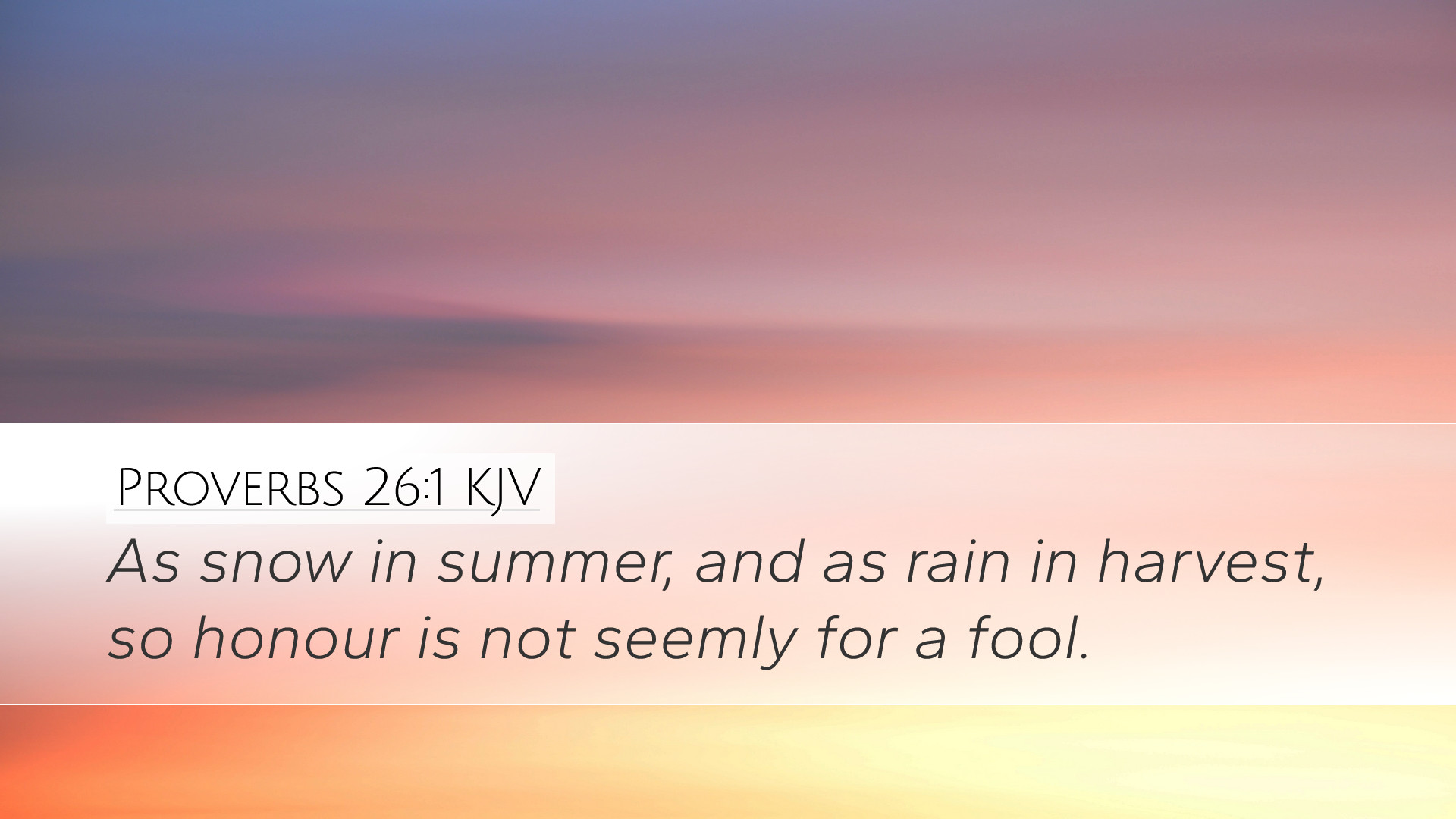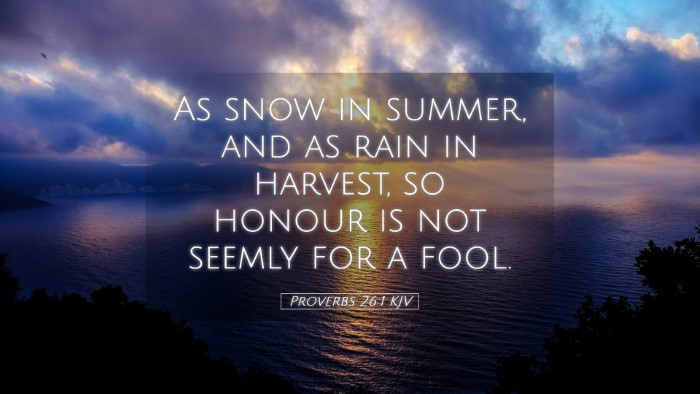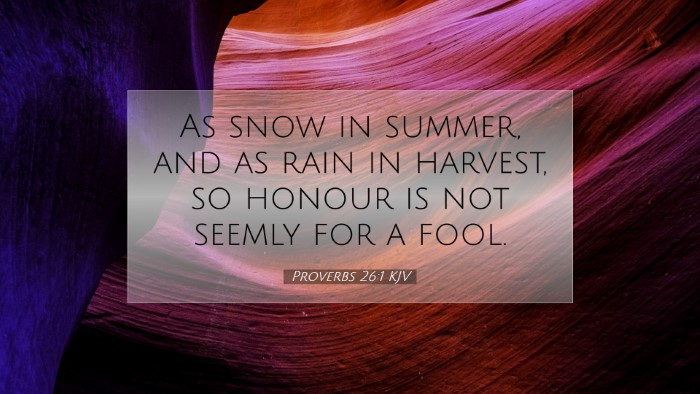Commentary on Proverbs 26:1
Verse: "As snow in summer, and as rain in harvest, so honor is not seemly for a fool."
Understanding Proverbs 26:1
This proverb presents a vivid analogy to illustrate the incongruity of honor bestowed upon a fool, comparing it to snow in summer and rain during harvest time. Such scenarios are naturally out of place, which underscores the folly of honoring those who lack wisdom.
Insights from Commentaries
Matthew Henry
Matthew Henry emphasizes that the honor, which is supposed to be reserved for those possessing wisdom and integrity, is misplaced when given to the foolish. He observes that as snow is unwelcome in summer – a season intended for warmth and growth – so is honor unbefitting to a fool. Henry likens the granting of honor in this context to an act that disrupts the natural order, reflecting that wisdom, rather than folly, must characterize those who are to be esteemed in society.
Albert Barnes
Albert Barnes elaborates on this metaphor by noting how seasonal conditions affect agricultural practices. He argues that rain during harvest is counterproductive, just as giving honor to fools disrupts societal expectations. Barnes notes that honor is a serious matter that should only be awarded to those whose actions and lifestyles warrant it. He interprets this proverb as a cautionary statement against the careless bestowal of honor, warning that such practices could yield disastrous consequences for the fabric of social and moral order.
Adam Clarke
Adam Clarke provides a more philosophical perspective on the concept of honor and consideration, asserting that true honor should arise naturally from an individual’s character and actions rather than being artificially imposed. Clarke explains that the purpose of this proverb is to depict the absurdity of giving esteem to those who do not possess the qualities deserving of it. He contends that such actions only serve to degrade the value of honor itself, turning it into something superficial and devoid of real meaning.
Theological Implications
- Honor and Wisdom: The proverb highlights the intrinsic link between honor and wisdom. Honor should be rightfully bestowed upon those whose lives reflect godly characteristics.
- The Nature of Fools: It compels readers to contemplate the nature of foolishness and the behaviors associated with it, reinforcing the biblical view that folly leads to disgrace.
- Disorder in Society: The message warns against the societal ramifications of honoring the unworthy, suggesting that such practices can lead to moral decay.
Practical Applications
For pastors, students, and theologians, this proverb serves as a compelling reminder of the importance of discernment in assigning honor. It challenges leaders and communities to examine the qualifications and character of those they uplift. In a world that often celebrates superficial achievements, Proverbs 26:1 calls for a return to valuing true wisdom and integrity.
Moreover, it invites personal reflection on the traits we value in our own lives and communities, urging us to cultivate a depth of character that honors God and promotes genuine wisdom.
Conclusion
In conclusion, Proverbs 26:1 encapsulates a profound truth about the relationship between wisdom, honor, and societal integrity. The insights from public domain commentaries underscore the timeless relevance of this verse. As we strive to live out our faith and lead others, let us be reminded that honor should always align with virtue and understanding, fostering an environment that cultivates true wisdom.


